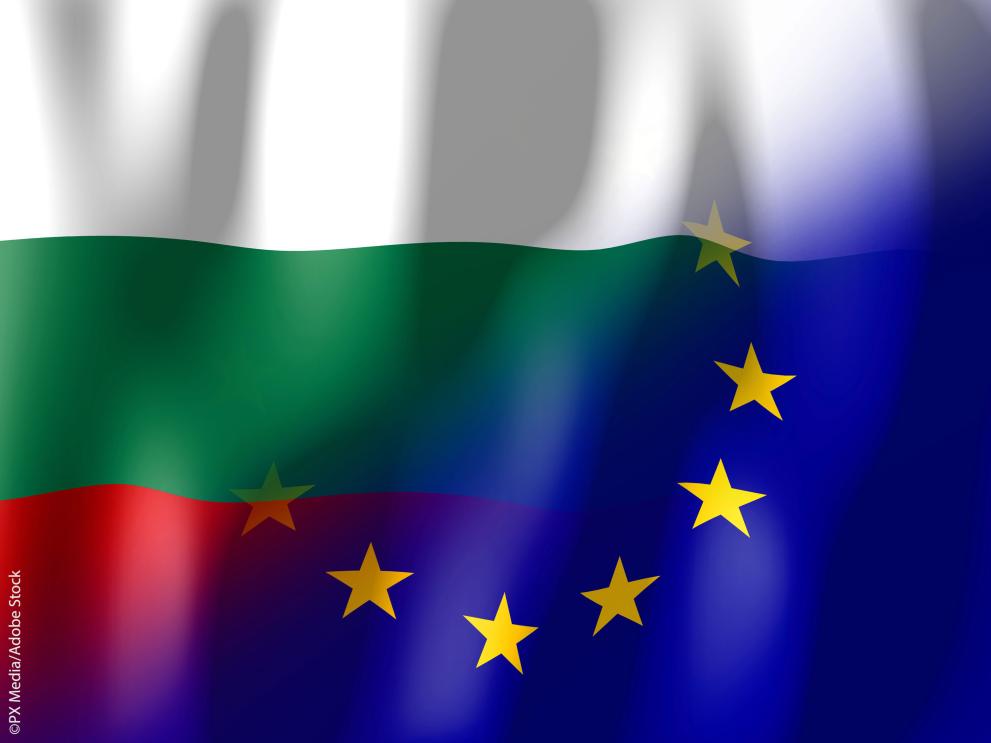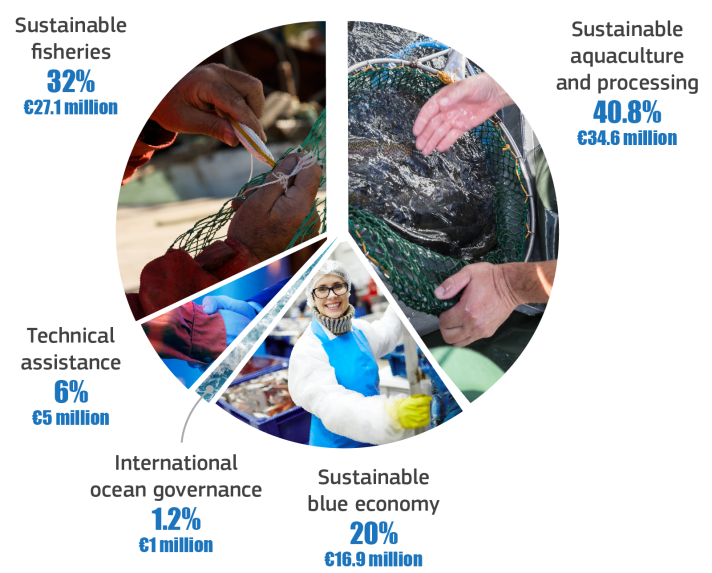
Following the adoption of the Partnership Agreement 2021-2027 with Bulgaria, the Commission has adopted the European Maritime, Fisheries and Aquaculture Fund (EMFAF) programme for Bulgaria, to implement the EU common fisheries policy (CFP) and EU policy priorities outlined in the European Green Deal. The total financial allocation for the Bulgarian programme 2021-2027 is €121 million over the next six years, of which the EU contribution accounts for €85 million.
Commissioner for Environment, Oceans and Fisheries, Virginijus Sinkevičius, said:
The adopted EMFAF programme will help Bulgaria build a resilient, innovative, sustainable and low-carbon fishery, aquaculture and processing sectors and boost their green and digital transition. It will also contribute to the development of fishing and aquaculture communities, support the protection and restoration of aquatic biodiversity and ecosystems and strengthen sustainable sea and ocean management.
Supported activities
32% of the programme’s allocation will be dedicated to sustainable fisheries, 40.8% will be invested in sustainable aquaculture and processing and marketing, 20% will be dedicated to sustainable blue economy in coastal and inland regions and 1.2% will be invested in strengthening of international ocean governance. All supported activities will contribute to the EU’s environmental and climate objectives.
The programme will support, among others things:
- Sustainable fisheries: investments in greening of fishing ports and improving their infrastructure to facilitate landing of unwanted catches; temporary and permanent cessation of fishing activities to help achieve balance between fleet capacity and fishing opportunities. Investments in gear selectivity and decarbonisation of the sector will also be supported as well as conservation activities, effective control and enforcement of fisheries rules and comprehensive data collection activities.
- Sustainable aquaculture: investments in green aquaculture and processing, innovation and digitalisation, organic and algae production, as well as diversification of activities, producer organisations and marketing, communication and compensation activities.
- Sustainable blue economy: development of coastal and inland areas by supporting fishery and aquaculture communities across Bulgaria. This will be done via community-led local development strategies, a bottom-up approach to policy development that encourages local people to form local action groups and get involved. The Smart Specialisation Strategy will also be taken into account.
- International ocean governance: investments in strengthening sustainable Black Sea management by improving knowledge on the state of the marine environment, including offshore renewable energy; increasing the data quality and sharing via EMODnet; continuing in development of a joint real-time information exchange system for maritime surveillance and promoting coastguard cooperation.
Main expected outcomes until 2027
The Bulgarian EMFAF programme will contribute to the EU horizontal priorities outlined in the European Green Deal, Farm to Fork and Biodiversity strategies.
The programme will support the resilience of the fisheries, aquaculture and processing sectors through financial contributions to diversify the production or by using compensation schemes to support the relevant blue economy sectors from future crises.
It will enhance knowledge, skills and capacity building of workers, help improve health and hygiene conditions and ensure energy efficiency, waste reduction and quality products. It will also support modernisation of fishery, aquaculture and processing facilities, creation of producer organisations and development of short supply chains.
The green transition of the sector is a key area of the programme and investments will support the shift to lower-carbon fuels and low-impact fishing techniques and gears, as well as modernising fishing ports and developing the circular economy to give value to seafood waste. Funding will be provided also for research and innovation into green technologies as well as activities to improve the conservation status of biodiversity and habitats and animal health and welfare practices. Organic aquaculture, algae farming, recirculating systems and aquaculture providing environmental services will be supported too.
The digital transition of the Bulgarian fisheries, aquaculture and processing sectors will be achieved via a wide range of innovative solutions from means of control and collection of fisheries data to new IT technologies applied to aquaculture production and administrative digitalisation. It will lead to enhanced and modernised data management and fisheries monitoring technology, electronic traceability, use of new digital tools and improved digital skills of workers.
The financial support will also help manage and extend marine protected areas and to fight against marine litter. The programme will reinforce the environmental actions undertaken under the Bulgarian prioritised action framework for Natura 2000: monitoring of marine habitats and species and promotion of scientific knowledge, in line with the EU’s Birds and Habitats Directives.
The EMFAF programme benefits from a good cooperation between the European Commission, the national managing authority and local partners.
Background
The EMFAF runs from 2021 to 2027 and supports the EU common fisheries policy (CFP), the EU maritime policy and the EU agenda for international ocean governance. The fund helps achieve sustainable fisheries and conserve marine biological resources.
Article 8 of the EMFAF Regulation (EU) 2021/1139 requires Member States to produce a national implementation programme for the EMFAF. This operational programme focuses on EU priorities, laying down the strategy and investment priorities, including the indicative annual financial allocation for each priority. The programme is subject to approval by the European Commission.
More information
Details
- Publication date
- 24 November 2022
- Author
- Directorate-General for Maritime Affairs and Fisheries

